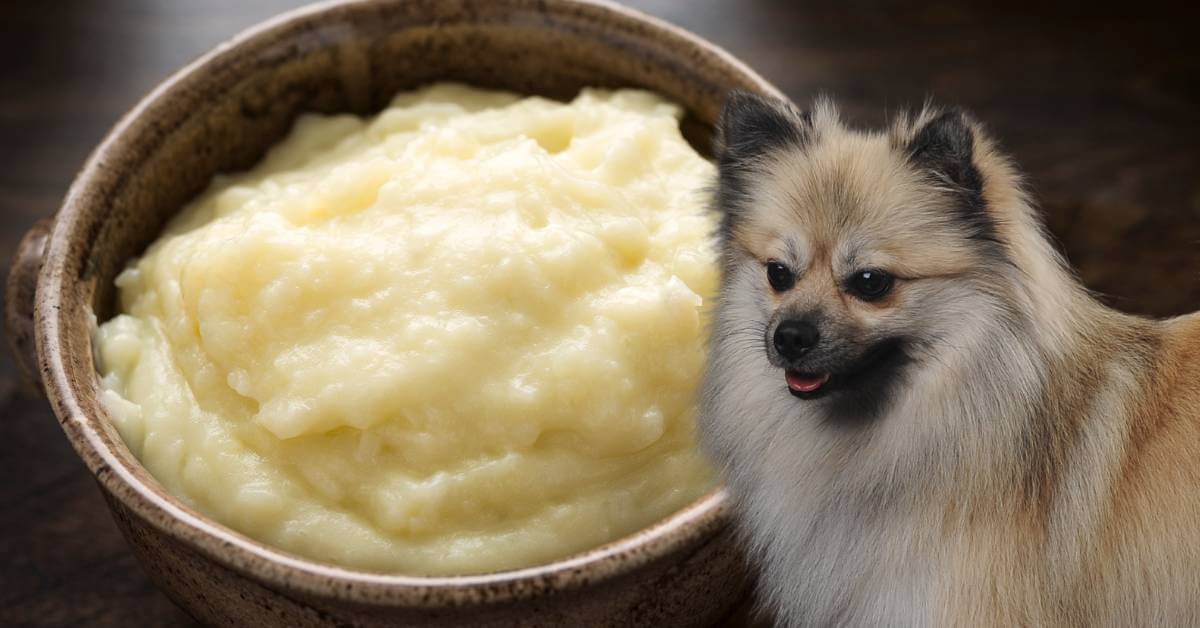Can dogs eat grits?
Yes, but it’s not really recommended. While cooked, plain grits can be safe for dogs in small amounts if they are free of butter, salt, and other seasonings. It’s empty calories, and it’s not healthy. Also, instant grits often contain added flavors and preservatives that aren’t good for dogs. As a general guideline, when sharing non-dog food with our furry friends, it’s best to keep it simple and unseasoned to avoid upsetting their stomachs.

Grits are not toxic for dogs, but are they healthy?
Grits are a popular dish made from ground corn, typically served in Southern cuisine. They’re usually cooked by boiling them in water or milk until they reach a thick, creamy consistency. People often add ingredients like butter, cheese, salt, and various seasonings to enhance their flavor. While grits aren’t toxic to dogs, they need to be prepared without these added ingredients to be safe for our furry friends.
Why grits might not be the best choice for your dog
- Empty calories: Grits are mainly composed of carbohydrates, which provide little nutritional value for dogs. They lack essential vitamins, minerals, and proteins necessary for a balanced canine diet. Feeding your dog grits can contribute to unnecessary calorie intake without offering any significant health benefits.
- Digestive issues: Dogs have different digestive systems than people, and they can sometimes struggle with foods not part of their regular diet. Grits can be tough for some dogs to digest, potentially leading to stomach upset, gas, or diarrhea.
- Common additives: As mentioned earlier, grits are often cooked with salt, butter, cheese, and various seasonings. These additives can be harmful to dogs. Salt can cause sodium ion poisoning, butter and cheese can lead to obesity and pancreatitis due to high-fat content, and seasonings may contain toxic substances like garlic or onion powder.
Potential health risks for dogs consuming grits
None of these will happen if your dog eats a small amount, but we still wanted to put this out there so you know.
Given these concerns, it’s clear that grits are not inherently toxic to dogs but are not a healthy or necessary addition to their diet. If you want to share a small amount of plain, cooked grits with your dog, it should be an occasional treat rather than a regular part of their meals.
Also, in another post about dogs and corn, we’ll dig deep into the myth that corn is bad, or inflammatory and whatnot, but just to give you peace of mind — corn is not dangerous for your dog, and unless they are allergic, you don’t need to worry.
Corn allergy and symptoms you should know about
Corn allergies in dogs are very rare but can still occur. When dogs develop a corn allergy, their immune system mistakenly identifies the corn proteins as harmful and triggers an allergic response. This can happen with any corn-based product, including grits.
Symptoms of a corn allergy in dogs include:
If you think your dog has a corn allergy, it’s best to call your vet. As with any allergy, a vet will probably recommend an elimination diet to pinpoint the allergen or suggest allergy testing. Once diagnosed, managing a corn allergy typically involves avoiding all corn-based products and carefully reading ingredient labels to ensure your dog’s food is safe.
So, grits is not the healthiest option for your dog, but now you don’t need to worry if your dog ate some grits that you made. The extra butter and salt won’t harm them, but it’s not good for them. We personally never gave our dog any, as there are better options with more nutrients, but grits is not dangerous for dogs nor toxic.
Love, life and fur forever!
FAQs
These are some of the most popular FAQs. If you have more questions, please leave a comment!
Are dogs allergic to grits?
While dogs are not commonly allergic to grits, they can have an allergy to corn, which is the main ingredient in grits. Symptoms of a corn allergy can include itchy skin, digestive issues, and ear infections. Call your vet if you notice any of these symptoms.
Can dogs eat instant grits?
Dogs should generally avoid instant grits. Instant grits often contain added flavors, preservatives, and unsafe seasonings for dogs. Plain, cooked grits without added ingredients are a safer option, but they should still be given in moderation.
Can dogs eat plain grits?
Yes, dogs can eat plain grits in small amounts. Make sure the grits are cooked and free of any added butter, salt, cheese, or other seasonings. However, plain grits are not particularly nutritious and should only be given as an occasional treat and not a part of their regular menu.